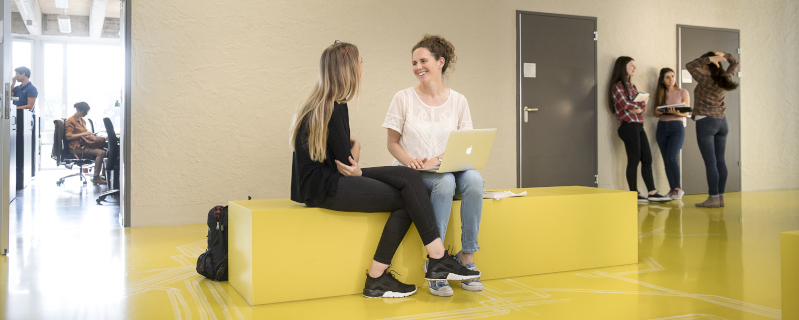Institute of Education

At the University of Zurich’s Institute of Education, approx. 2,000 students are enrolled in educational science bachelor and master programs, in the teaching diploma program for upper secondary schools, or in doctoral studies. Fourteen chairs, two professorships and more than 100 employees conduct research and teach in a comprehensive spectrum of current educational science topics. The Institute of Education is the largest educational science institute at a Swiss university.
History
Today’s Institute of Education dates back to the Pedagogical Institute, which was founded in 1968. After merging with the Institute for Special Education in 2009, the institute received its current name. In 2012, the Institute of Education expanded further by merging with the Institute for Baccalaureate and Vocational Education.
Educational Science Degree Programs
The Institute of Education offers a Bachelor’s and a Master’s degree program in Educational Science (Major/Minor) and a Bachelor’s and a Master’s degree program in Educational Science and Psychology (Major) as well as a complementary Master’s degree program in Economic Education (Minor) and a complementary Master’s degree program in Education in the Life Course (Minor). Further there are also various doctoral programs.
Teaching Diploma for Upper Secondary Education
The Department of Teacher Training for Upper Secondary Schools offers the Teaching Diploma for Upper Secondary Education (German only). In addition, the department provides ongoing professional development opportunities regarding career entry and continuing education.
Research
The Institute of Education conducts theoretical and empirical research on central scientific and social issues in formal, non-formal, and informal educational contexts, such as school, family, youth work, and professional life. This is accomplished with historical, qualitative, quantitative, and theory-building approaches and with the support of public and private institutions: the Swiss National Science Foundation, foundations, companies, the Federal Government, cantons, and municipalities.
Services
The Institute of Education is involved in various areas of the educational system, including evaluations, continuing education, lectures, and consultations as well as the participation in relevant committees.